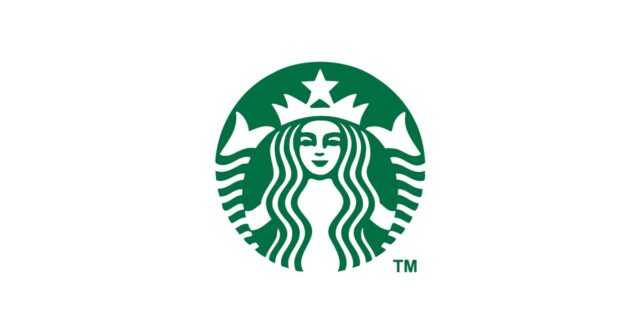MILAN – A consumer advocacy group is suing Starbucks for allegedly falsely advertising “ethically sourced” tea and coffee when it was allegedly obtained from farms accused of human rights violations in other countries.
The National Consumers League filed a lawsuit on Wednesday in the Superior Court of the District of Columbia, accusing the the world’s largest coffee chain brand of sourcing “coffee beans and tea leaves from cooperatives and farms that have committed documented, severe human rights and labor abuses, including the use of child labor and forced labor as well as rampant and egregious sexual harassment and assault.”
The US consumer group says that the company’s claim of ethical sourcing for its tea and coffee is false and misleading.
Among the incidents cited in the lawsuit was a 2022 case in which police rescued 17 workers — including three teenagers — from a coffee farm in Brazil where they were made to work outdoors without protective equipment and lift 130-pound sacks of coffee, reports AP.
The case was covered by Repórter Brasil, a group of journalists that investigates workers’ rights and environmental issues.
The lawsuit also cites a 2023 report by the BBC exposing rampant sexual abuse and grueling working conditions on the James Finlay tea plantation in Kenya. James Finlay was a supplier to Starbucks at the time, but Starbucks said Wednesday it no longer buys tea from that plantation.
Child labor has been allegedly used in separate Starbucks-certified farms in Guatemala. In Kenya, meanwhile, a plantation operation that supplies tea to Starbucks has been accused of “rampant sexual abuse”, including supervisors forcing women to have sex in return for work.
Starbucks buys around 3% of the world’s coffee. The company says it works with 400,000 farmers in more than 30 countries.
Starbucks issued statements saying that the company was “deeply concerned,” and that it would “thoroughly investigate” claims of labor violations, “take immediate action” to suspend purchases or “ensure corrective action” occurred.
Here is the press release from NCL
WASHINGTON, DC – The National Consumers League (NCL), America’s pioneering consumer advocacy organization, on Wednesday, January 10, 2024, filed a lawsuit alleging that Starbucks is falsely and deceptively claiming “100% ethical” coffee and tea sourcing, detailing widespread evidence the company relies on farms and cooperatives that commit egregious labor and human rights violations.
The lawsuit, filed in the Superior Court of the District of Columbia, notes that Starbucks has responded to its consumers’ demand for responsible corporate practices by launching a yearslong campaign to brand itself as a leader in ethical coffee and tea sourcing, including by developing its own set of “Coffee and Farmer Equity (C.A.F.E.) Practices” verification standards. In one promotional video featured during the 2023 holiday season, a Starbucks spokesperson says that when he drinks Starbucks coffee, “I know it was ethically sourced.”
In reality, the lawsuit alleges, the company’s marketing misleads consumers and fails to convey the rampant sourcing from coffee and tea farms and cooperatives with a documented history of child labor, forced labor, sexual harassment and assault and other human rights abuses.
“On every bag of coffee and box of K-cups sitting on grocery store shelves, Starbucks is telling consumers a lie,” said Sally Greenberg, chief executive officer of the National Consumers League. “The facts are clear: there are significant human rights and labor abuses across Starbucks’ supply chain, and consumers have a right to know exactly what they’re paying for. NCL is committed to exposing and reining in these deceptive practices and holding Starbucks accountable for living up to its claims.”
In 2022, for instance, the Brazilian labor prosecutor issued a complaint against Starbucks’ largest Brazilian supplier, citing working conditions analogous to slavery, including illegally trafficking more than 30 migrant workers. At the Cooxupé collective, which accounts for 40 percent of Starbucks’ Brazilian coffee supply and has received the “C.A.F.E. Practices” certification, investigators found that workers put in excessive hours and carry coffee sacks weighing over 100 pounds on their backs.
“Starbucks’ failure to adopt meaningful reforms to its coffee and tea sourcing practices in the face of these critiques and documented labor abuses on its source farms is wholly inconsistent with a reasonable consumer’s understanding of what it means to be ‘committed to 100% ethical’ sourcing,” the complaint reads. “Similarly, Starbucks’ failure to disclose to consumers the unreliability of these certification programs and their limitations as a guarantee of ethical sourcing are misleading omissions material to the decision-making of a reasonable consumer.”
To protect consumers who may unknowingly be buying unethically sourced coffee or tea — and paying a premium for those products — National Consumers League seeks an order enjoining Starbucks from further engaging in deceptive advertising and requiring the company to run a corrective advertising campaign. Making good on its representations to consumers would require Starbucks to significantly reform its sourcing and monitoring practices to ensure that workers on the farms and cooperatives that supply its coffee and tea products are treated fairly and in accordance with the law.
Across Starbucks’ Global Supply Chain, Pattern of Abuses Emerges
Over the last decade, a broad range of investigations by government agencies and journalists has uncovered a clear pattern of labor and human rights abuses at Starbucks’ preferred farms and cooperatives — even those that have received the company’s own “C.A.F.E. Practices” certification.
- At the James Finlay plantation in Kenya, a Starbucks tea source, undercover reporters with the BBC exposed rampant sexual abuse, including supervisors forcing women into having sex in exchange for work. Thousands of Finlay workers have also filed a class action lawsuit alleging grueling working conditions that wore down their bodies and detailing Finlay’s practice of firing chronically injured workers instead of providing them with healthcare. Finlay workers are reportedly paid the equivalent of $30 per week.
- At the Starbucks-certified Mesas Farm in Brazil, law enforcement officers in 2022 rescued 17 workers, including a 15-, 16- and 17-year old, from slavery-like conditions, which included outdoor work, unprotected from the elements, that required workers to lift coffee sacks weighing over 130 pounds. The Mesas Farm has also failed to provide the workers with the personal protective equipment that is required by Brazilian law.
- At three different Starbucks certified farms in Guatemala, Channel 4 found children under 13 years old working 40 or 50 hours per week.
Although Starbucks has repeatedly been made aware of the rampant abuses at its supplier and “C.A.F.E. Practices” certified farms and cooperatives, the company has failed to respond with meaningful action.
“Starbucks misleadingly fails to disclose facts material to consumer purchasing decisions, including that many of its supposedly ethical suppliers have in fact relied on forced and/or child labor, i.e. that C.A.F.E. Practices certification does not guarantee the absence of forced and child labor,” the complaint reads.
Michelle Burns, Starbucks’ evp of global coffee, social impact & sustainability, issued the following statement:
Today you may have seen reporting from NBC News and other media calling into question our commitment to ethical and responsible coffee sourcing. Coverage includes mention of a lawsuit that centers on claims of false advertising about our goal to source and verify 100% of Starbucks coffee through C.A.F.E. Practices.
Please know we take these allegations very seriously, and plan to aggressively defend against claims that Starbucks has misrepresented our ethical sourcing commitments to customers.
For me, and I’m sure for many partners, this feels personal. And it is. Because our ethical sourcing program is best-in-class. And because the tradition of great coffee is what has set us apart for more than 50 years. Our commitment and our responsibility to build a more sustainable, equitable, and resilient future for coffee is unwavering.
Transparency is essential to fulfilling our mission, upholding our promises, and living our values. In that spirit, here are the facts about Coffee and Farmer Equity (C.A.F.E.) Practices, which was one of the industry’s first set of ethical sourcing standards when it launched in 2004 and remains the cornerstone of our holistic work to ensure the long-term supply of high-quality coffee.
- Developed in collaboration with Conservation International, C.A.F.E. Practices is a verification program, not a one-time certification system.
- To maintain an active status in the program, each supply chain is required to undergo reverification regularly with frequency dictated by their performance in the program and the size of the farm.
- Starbucks relies on SCS Global Services (SCS) to ensure the quality and integrity of the third-party auditing for C.A.F.E. Practices. Evaluation criteria are open-sourced and publicly available, consisting of more than 200 indicators across four criteria areas: economic transparency, social responsibility, environmental leadership and quality.
- We believe that a focus on scrutiny for continuous improvement is the right approach to promote positive change amongst suppliers and farms and ensure a future for everyone involved in coffee.
- In instances where Starbucks is notified of alleged violations, we take immediate action. We conduct an investigation that may lead to suspending the commercial relationship with a farm, or asking the farm to create a plan describing how the issue will be corrected. We remain committed to meeting the expectations detailed in our Global Human Rights Statement.
Through two decades of auditing farms, evaluating results, and strengthening our auditing standards and practices to be among the most stringent in the industry, we’ve gained valuable insights into what support coffee farmers need.
We will continue to maintain our presence in regions where we source coffee across the globe – even when it’s hard – because it is the right thing to do. We believe Starbucks presence in these communities must be a force of good.
We will share more as we continue to manage and learn more about this situation.














